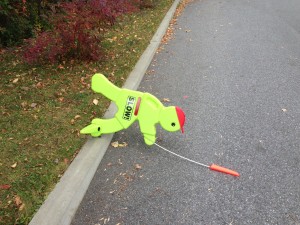Sometimes it is hard to communicate with 4-year-olds. They do not know as many things as adults, and specifically their word choices are not as vast as the average person. There is a lot of nuance that one must pay attention to as one listens to, and tries to figure out, what these young citizens are saying. So when they say that something is slow, it may be because they don’t know the word “jammed.” Or if they tell you that they are hurt, it is possible that they don’t know the phrase “crocodile tears.” You must infer from the context clues what their true intentions are. Do they need cuddles? Or are they trying to scam a cookie? Hard to tell.
But sometimes the opposite problem arises, simply because we parents know too much, and we forget to simplify. This has happened to me when trying to help nieces and nephews with math homework. They need to learn the basic way to do things, but I have learned so many tricks and shortcuts, that I don’t remember the exact long way anymore. The same is true with words. So many words in the English language have multiple meanings, and even when they don’t we give them more. Like how bad sometimes means good. Little kids do not know about all of these meanings, so when they use words they use them in their purest form. They have no idea what a double entendre is, or how sarcasm works. When they speak, they are generally quite literal. Sometimes this is easy to forget.
The other day I was out walking with my son, when he started laughing and said “Ha ha! That slow guy fell down!”
Well, I don’t think I need to tell you that I was quite upset with him. I was all ready to launch into a lecture about labels, name calling, politeness, respect for other humans, and many more important parenting talking points, when I turned around and saw what he had been referring to. Sometimes it’s easy to forget how literal a 4-year-old can be.

